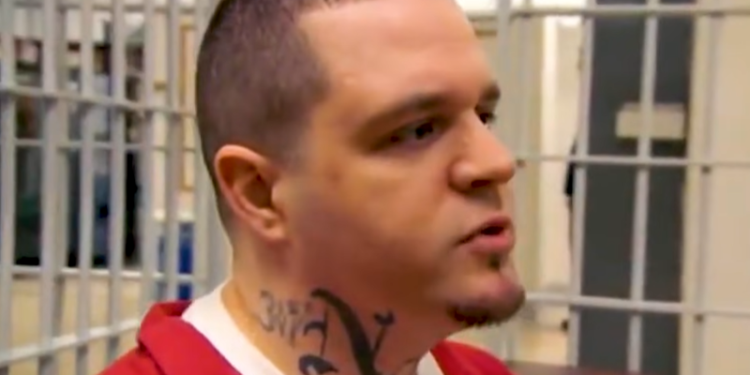Benjamin Ritchie, 45, was put to death by lethal injection early Tuesday at the Indiana State Prison, bringing to a close a nearly 25-year legal battle following his conviction in the fatal shooting of a police officer. Ritchie’s execution marks the second in Indiana since 2009, as the state resumed capital punishment in December after a lengthy hiatus. He was pronounced dead at 12:46 a.m.
Ritchie had been on death row since his 2002 conviction for the murder of Beech Grove Police Officer Bill Toney. The crime occurred on September 29, 2000, when Ritchie, then 20 years old and on probation for a 1998 burglary, stole a van near Indianapolis. During a subsequent foot chase, Ritchie shot the 31-year-old officer five times, killing him. Officer Toney, a married father of two daughters, died just hours before his 32nd birthday.
In the decades leading up to his execution, Ritchie’s case underwent numerous reviews. His legal team argued that he suffered from severe brain damage due to Fetal Alcohol Spectrum Disorder (FASD) and childhood lead exposure, claiming these conditions impaired his ability to process information and make appropriate decisions during the complex situation of the shooting. Attorneys also contended that his initial legal counsel was ineffective for failing to fully investigate and present this evidence. In 2005, Ritchie was also diagnosed with bipolar disorder.
Despite these arguments, Ritchie’s clemency plea was unanimously rejected by the Indiana Parole Board last week. Board members cited a dozen violations during Ritchie’s time in prison, including threats of violence, as reasons for their decision. Indiana Governor Mike Braun followed the board’s recommendation, stating that Ritchie’s case had been “heard and reviewed numerous times by both state and federal courts, including the Indiana Supreme Court and the U.S. Supreme Court, never resulting in an overturned sentence.” Ritchie’s final appeals for an emergency stay were denied by both a federal court and the U.S. Supreme Court on Monday.
During his clemency hearing, Ritchie expressed remorse for his actions, telling the parole board, “I’ve ruined my life and other people’s lives, and I’m so sorry for that night. You can’t take back what you did.” He reflected on his youthful defiance, wishing he could “go back and just shake that kid,” and specifically regretting his unremorseful behavior in court at the time of his conviction, where he had smiled at Toney’s widow and laughed. “I wish I could go back to the day in court, because that man’s wife deserved to say everything she needed to say to me, and that punk kid should have just kept his mouth shut,” Ritchie stated.
Officer Toney’s widow, Dee Dee Horen, also spoke at the clemency hearing, advocating for the execution to proceed. “It’s time. We’re all tired,” Horen said. “It is time for this chapter of my story, our story, to be closed. It’s time for us to remember Bill, to remember Bill’s life, and not his death.” The Beech Grove Police Department issued a statement acknowledging the “solemn oath” Officer Toney took and that “his life was violently taken… by an individual whose actions adversely affected the innocent and ripped at the very fabric that holds society together.”
The execution itself was conducted under Indiana’s highly secretive protocols, which bar independent media witnesses. Defense attorney Steve Schutte, who was one of four witnesses present for Ritchie, described seeing Ritchie “violently” lift from the gurney and twitch for about three seconds shortly after the process began. Schutte noted he could not hear Ritchie but perceived it as a “muscle reaction.” Ritchie’s last meal was the Tour of Italy from Olive Garden, and his last words were, “I love my family, my friends, and all the support I’ve gotten. I hope they all find peace.” Ritchie was allowed to have a pastor present in the execution chamber.
Following the execution, Indiana Attorney General Todd Rokita affirmed that “justice was served,” and the state had “reaffirmed our commitment to upholding the rule of law.” Conversely, defense attorney Mark Koselke stated that the execution was “the result of prioritizing finality over fairness,” asserting, “Indiana executed a man with profound brain damage and developmental disabilities.”
In the hours leading up to the execution, a group of two dozen peaceful protesters, including clergy members from the Catholic Diocese of Gary, gathered outside the Indiana State Prison to oppose the death penalty. They prayed for Ritchie, his legal team, correctional staff, and Officer Toney’s family, ringing the “Delaware Bell” as a symbol of their opposition.
Ritchie’s execution on Tuesday was one of several capital punishments carried out in the United States this week. On the same evening in Texas, Matthew Lee Johnson, 49, received a lethal injection for the 2012 burning death of 76-year-old Nancy Harris, a convenience store clerk he set on fire during a robbery. These executions followed that of Glen Rogers in Florida on May 15, and preceded Oscar Smith’s scheduled execution in Tennessee on Thursday, highlighting a period of active capital punishment in multiple states





























